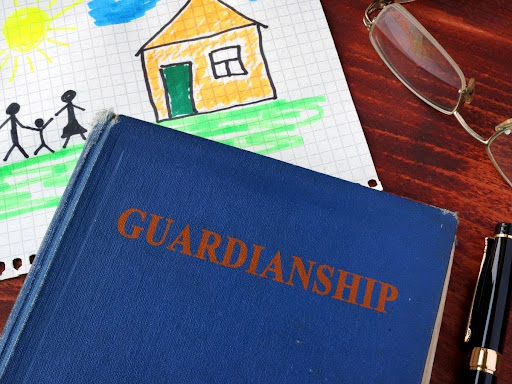
09 Nov Things to Know About Guardianship Law
Table Of Contents
What Is a Guardianship and How Does It Work?
The term “guardianship” refers to legal guardianship, in which a court appoints a legal guardian to look after another person. This person’s (the “ward’s”) legal guardian makes decisions for them and takes legal responsibility for them. The courts have given them legal authority to care for their ward, as well as their ward’s personal and financial interests. Senior citizens, developmentally disabled adults, and minor children are typically placed under legal guardianship.
Some of the decisions assigned to a legal guardian include, but are not limited to:
- Medical judgments
- Monetary decisions
- Contractual obligations
- Other decisions with legal consequences
Guardianship laws govern the process of appointing a guardian. These laws specify who is eligible to be a legal guardian and how the guardianship is carried out. The following are some examples of factors that courts consider when appointing a legal guardian:
- The ward’s existing personal relationship with the proposed guardian
- The specific needs of the ward, as well as their preferences on who should be their guardian
- The ability of the proposed guardian to comprehend and address the needs of the ward
- The duration of the guardianship — whether it should be temporary or permanent
Important Guardianship Questions to Consider
It can be tough to make guardianship decisions while writing a will. You must not only contemplate what will happen to your children if you die, but you must also choose the best person (or people) to care for them if you are no longer able to. An appointed guardian has all of the legal rights and responsibilities of a parent and is responsible for the child’s well-being entrusted to them. But how do you choose who would be the best candidate for the position as a parent?
While everyone’s decision-making processes are unique (and there are many highly personal aspects to the decision), there are a few essential questions that can assist you in making the best guardianship decisions for you and your family.
What will my children think of my decision?
It comes down to choosing who will look after your children and ensuring their safety and happiness. Part of this entails ensuring that the person(s) caring for them has their best interests at heart, and will be capable and responsible parents. When selecting guardians, think about how your children will feel living with each individual or couple; their relationship with their legal guardian will primarily determine each child’s happiness. Therefore, if there are others in their lives with whom they already have a unique tie, they should be considered.
Is my chosen guardian prepared to assume the role?
Just as each person’s decision about when to have children is unique, a guardianship candidate’s ability to care for your child will be determined by various factors in their own lives. Do they have children? Are they emotionally equipped to shoulder the burden? Are they psychologically and physically fit enough to handle the day-to-day responsibilities of child care? While there is always an emotional component to guardianship choices, these practical considerations are just as significant and can be challenging to analyze. It’s usually a good idea to sit down and talk with possible guardians to make sure they understand the situation and are on board with your decision.
Will my kids be able to live together?
Many parents prefer that their children grow up and live with their guardian, and it’s critical to state this in your will if that is your aim. Suppose your chosen guardian cannot fulfill your desire for some reason. In that case, the courts may be left with the task of selecting an alternate guardian, and the children could be separated if it is not clearly stated that they should remain together
Is your chosen guardian financially secure?
Caring for children is costly, and while you should consider them as part of your estate planning, it’s also necessary to consider the financial situation of any potential guardian.
Do you want to appoint a co-guardian?
Finally, many parents desire that their children be raised in a two-parent family. If this is your wish, make sure both people are mentioned in your will. To minimize future issues, be sure that any guardianship decisions are mirrored in the choice of the child’s other parent. It’s a good idea to consult an attorney who specializes in estate planning and trust matters to avoid any potential difficulties with establishing guardianship.
Talk to us today about the intricacies of guardianship law in the Ottawa region by calling (613) 526-3858 or visiting our website mcguintylaw.com.



